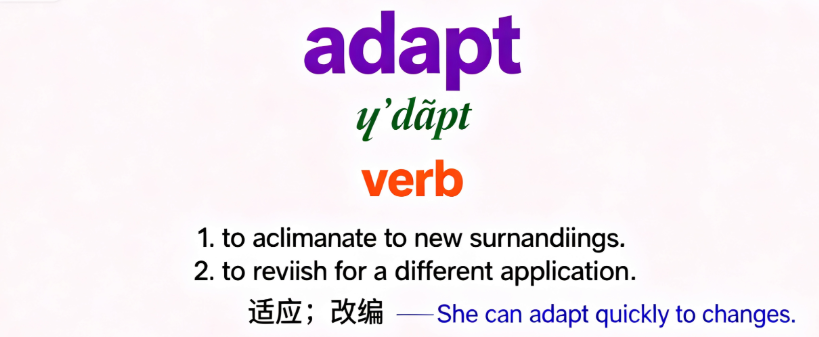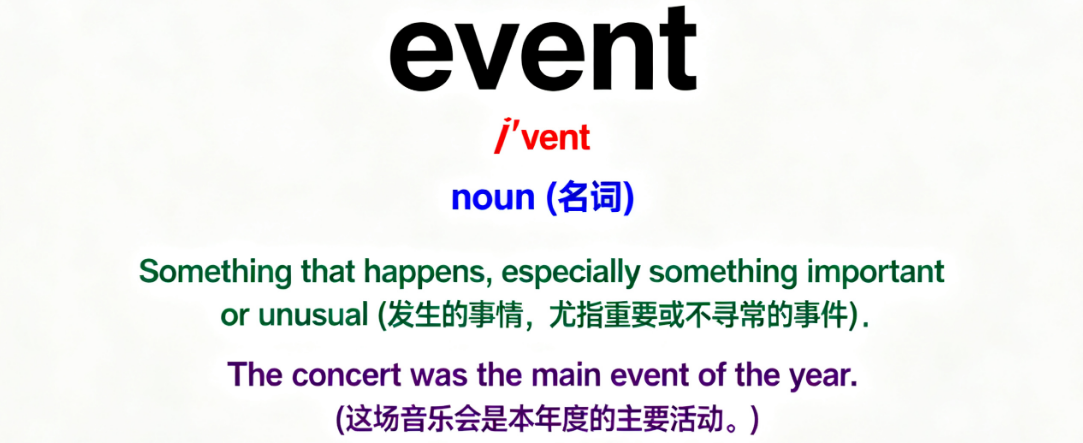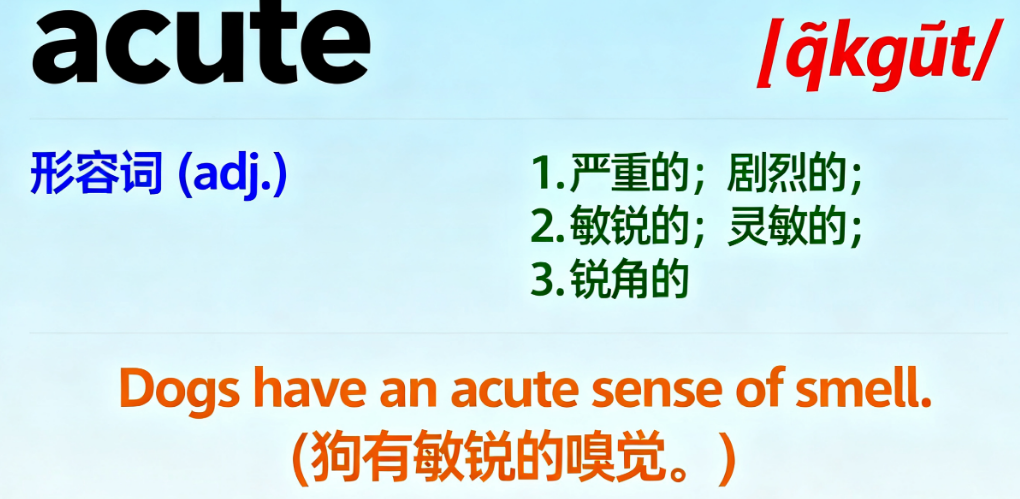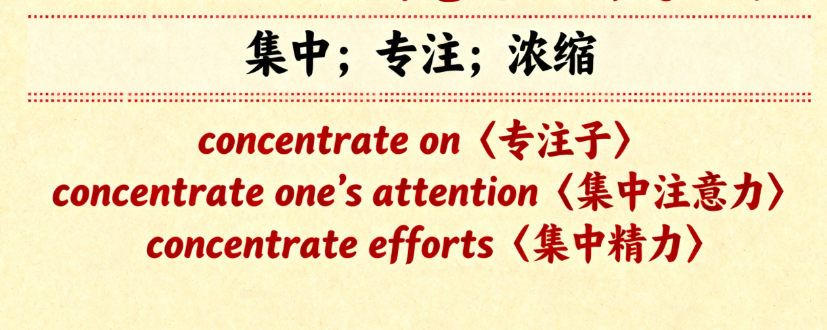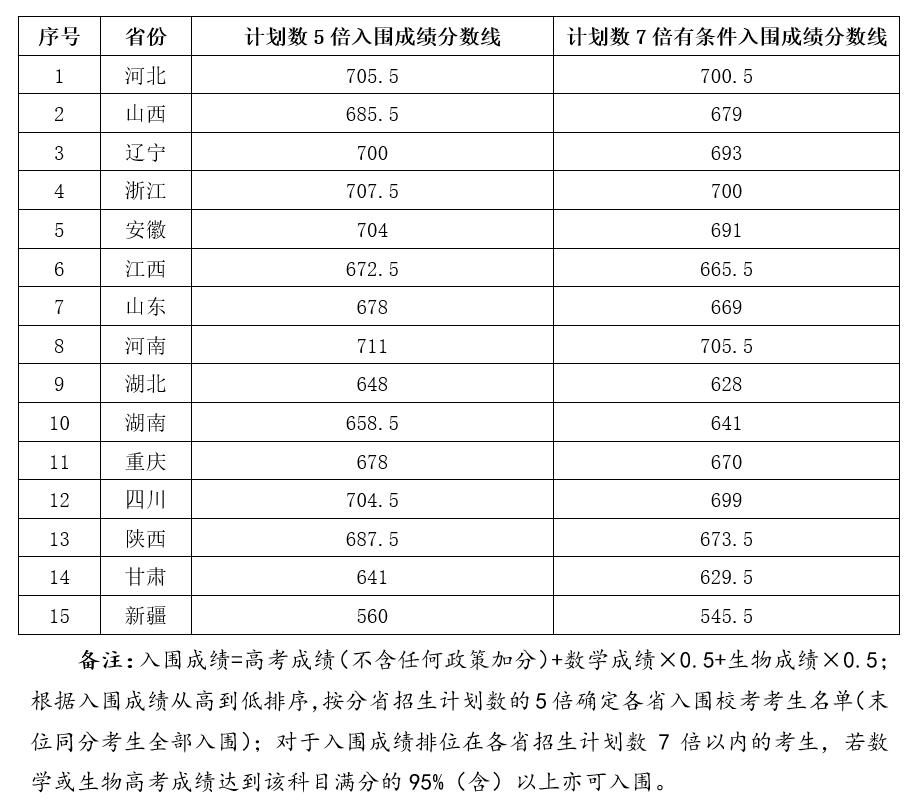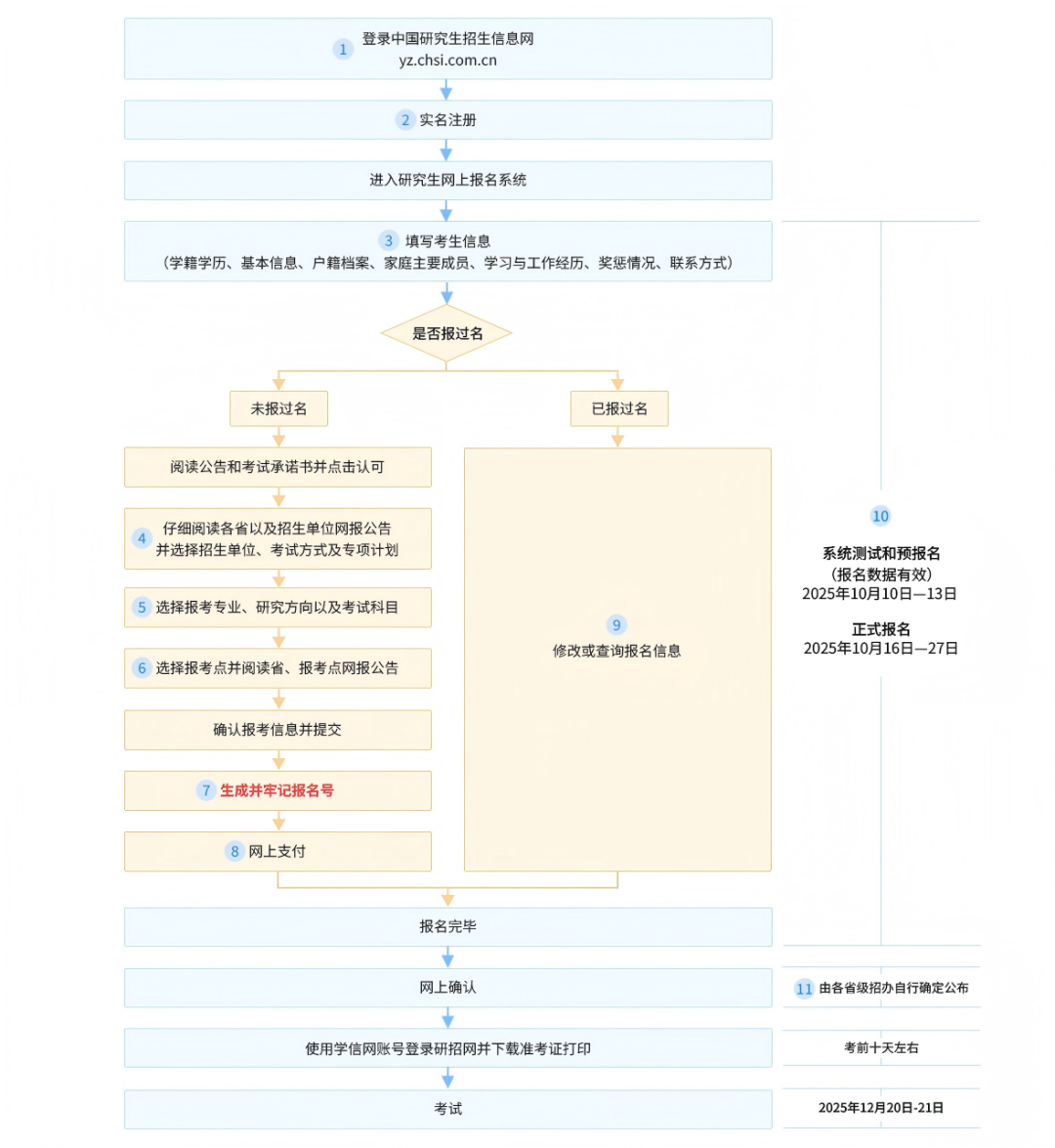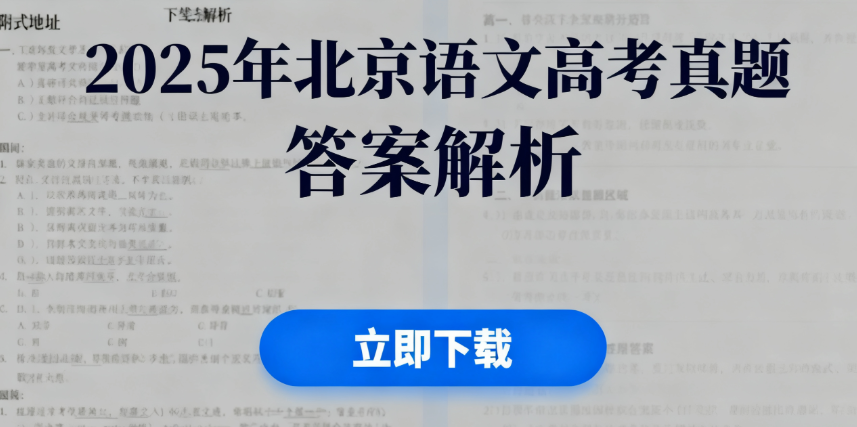Balance作为名词和动词使用,发音为英 [ˈbæləns],美 [ˈbæləns]。这个词源于拉丁语bilanc,由bi(两个)和lanx(盘子)组成,原指“两个秤盘”,这一形象帮助我们理解其核心概念。
一、中文释义与词性
Balance 核心含义为“平衡;均衡”,根据语境可分为以下三类:
名词:
例句:The company’s balance sheet showed a profit of $1 million.(公司资产负债表显示利润100万美元。)
例句:Finding a balance between work and life is essential for happiness.(平衡工作与生活是幸福的关键。)
例句:The dancer maintained perfect balance on her toes.(舞者用脚尖保持完美平衡。)
物理平衡:指物体受力或状态稳定(如天平、财务收支)。
抽象平衡:指生活、工作或关系中的协调(如工作与家庭平衡)。
财务术语:指账户或预算的收支相等(如“balance sheet”资产负债表)。
动词:
例句:You need to balance the cost against the quality.(你需要权衡成本与质量。)
例句:She balanced the tray carefully on one hand.(她单手小心地端平托盘。)
使平衡:通过调整达到稳定状态。
权衡比较:指对比利弊或选择(如“balance risks and benefits”权衡风险与收益)。
形容词(较少用):
例句:A balanced diet includes fruits, vegetables, and proteins.(均衡饮食包含水果、蔬菜和蛋白质。)
平衡的:描述状态稳定(如“balanced diet”均衡饮食)
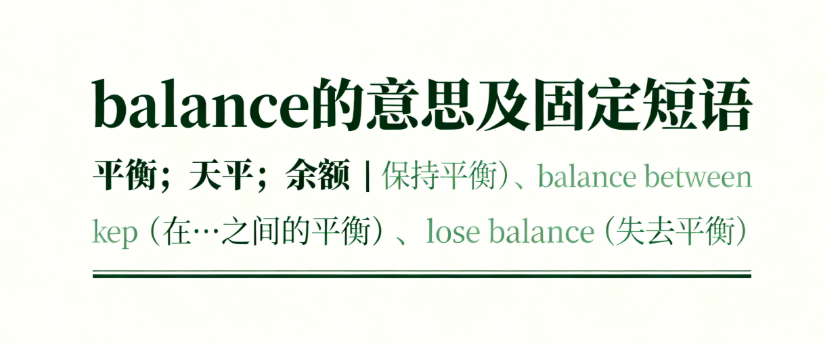
二、音标与发音
英式发音:/ˈbæl.əns/
美式发音:/ˈbæl.əns/
发音技巧:
重音在第一音节“-bal-”,末尾“-ance”轻读,类似“uhns”。
易错点:避免将“balance”读成“bay-lance”(错误),正确发音应短促有力。
三、固定短语搭配
掌握以下搭配可提升表达精准度:
keep/maintain a balance
用法:强调“保持平衡”,多用于持续状态。
例句:It’s important to keep a balance between exercise and rest.(保持运动与休息的平衡很重要。)
反例:❌“hold a balance”需改为✅“keep a balance”。
strike a balance
用法:表示“找到平衡点”,多用于决策或妥协场景。
例句:The government struck a balance between economic growth and environmental protection.(政府在经济增长与环保间找到了平衡。)
延伸义:可引申为“调和矛盾”(如“strike a balance between tradition and innovation”)。
out of balance
用法:描述“失衡状态”,常用于问题诊断。
例句:The economy is out of balance due to excessive spending.(过度支出导致经济失衡。)
反义短语:in balance(处于平衡状态)。
其他高频搭配:
check the balance(核对账户余额)
balance of power(权力平衡,如国际关系)
balance the books(结算账目)
trial balance(会计试算表)
keep/lose one's balance 保持/失去平衡
balance of power 力量平衡
work-life balance 工作与生活的平衡
strike a balance 找到折中办法
balance sheet 资产负债表
5.常用搭配与表达
近义词辨析
Balance与stability都含有“稳定”的意思,但侧重点不同:
Balance强调不同力量或元素之间的均衡状态,而stability更注重持久的稳固性。例如,经济稳定用economic stability,而收支平衡用balance of payments。
四、常见短语与语境应用
财务场景:
credit balance(贷方余额)
debit balance(借方余额)
例句:My bank account has a credit balance of $500.(我的银行账户有500美元贷方余额。)
健康与饮食:
work-life balance(工作与生活平衡)
balanced diet(均衡饮食)
例句:Poor work-life balance can lead to burnout.(工作与生活失衡可能导致倦怠。)
物理与运动:
balance beam(平衡木)
balance training(平衡训练)
例句:Gymnasts practice on the balance beam to improve stability.(体操运动员在平衡木上训练以提高稳定性。)
抽象概念:
balance of nature(自然平衡)
balance of emotions(情绪平衡)
例句:Destroying forests disrupts the balance of nature.(破坏森林会打破自然平衡。)
五、鼓励性名言名句
关于平衡的智慧:
"Happiness is not a matter of intensity but of balance, order, rhythm and harmony."
(幸福不在于强度,而在于平衡、秩序、节奏与和谐。——托马斯·默顿)"Life is like riding a bicycle. To keep your balance, you must keep moving."
(生活如骑自行车。保持平衡需不断前行。——爱因斯坦)关于权衡与选择:
"The art of life is a constant readjustment to our surroundings."
(生活的艺术是不断调整以适应环境。——卡卡基)"You can’t have everything. Where would you put it?"
(你不可能拥有一切。否则该放哪儿呢?——史蒂文·赖特,幽默中暗含平衡哲学)关于自然与和谐:
"Nature does not hurry, yet everything is accomplished."
(自然不匆忙,却成就一切。——老子,体现平衡中的效率)"The balance of nature is a delicate thing. Even small changes can have big consequences."
(自然平衡极其微妙。微小改变可能引发巨大后果。)
六、总结与行动建议
每日练习:
用“balance”描述个人状态(如“balance study and hobbies”平衡学习与爱好)、财务计划(如“balance budget”平衡预算)或社会议题(如“balance freedom and responsibility”平衡自由与责任)。
造句示例:To achieve success, one must balance ambition with patience.(成功需平衡野心与耐心。)
写作应用:
在议论文中用“Striking a balance between innovation and tradition is crucial for progress.”(在创新与传统间找到平衡对进步至关重要)增强逻辑性。
用“Out of balance”描述问题(如“The ecosystem is out of balance due to pollution.”)。
名言激励:
结合爱因斯坦的“Keep moving”名言,鼓励自己:“To find balance, keep moving forward with purpose.”(为找到平衡,带着目标持续前行。)
用托马斯·默顿的“和谐”观点反思生活:“True happiness lies in the balance of giving and receiving.”(真正的幸福在于给予与接受的平衡。)


